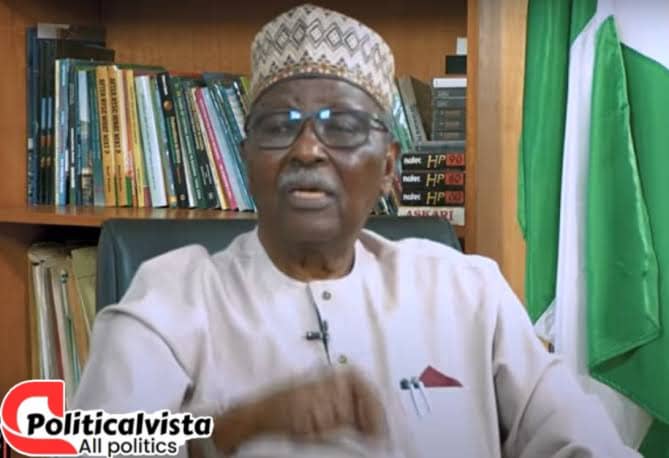
The ghosts of Nigeria’s past continue to haunt its present, as former Head of State, General Yakubu Gowon, finds himself at the center of a heated debate surrounding the Aburi Accord. This critical attempt to prevent the Nigerian Civil War in 1967 has sparked controversy, with Gowon attributing his agreement to the accord to a fever that may have clouded his judgment.
A House Divided
The Aburi Accord, held in Ghana, aimed to resolve the political crisis following the 1966 coups and massacres. However, it ultimately failed due to disagreements over its implementation, particularly concerning the control of military forces by regional governors. Gowon’s recent comments on Arise TV have reignited debates about the accord’s failure, with critics arguing that his portrayal ignores the broader context and responsibilities.
The History and Legacy of Controversy
Critics contend that strategic and political decisions, rather than illness, were the primary reasons for the war. The accord’s breakdown led to the Nigerian Civil War (1967-1970), resulting in significant loss of life and shaping Nigeria’s political landscape. As the Igbo proverb goes, “When two elephants fight, it is the grass that suffers.” In this case, the grass that suffered was the Nigerian people, who bore the brunt of the war’s devastation.
Gowon’s claim has been met with skepticism, with many pointing to evidence from historical documents and analyses that contradict his account. The Indigenous People of Biafra (IPOB) has faulted Gowon’s claims, describing them as a “provocative, insensitive, and shameless” attempt to whitewash the atrocities of the Biafran genocide.
The controversy surrounding Gowon’s comments has sparked reactions, including criticisms from the public, and renewed debate about Nigeria’s history and the legacy of the Aburi Accord. One point of contention is Chukwuemeka Odumegwu Ojukwu’s demand for regional governors to control military zones. As the proverbial saying goes, “You can’t put lipstick on a pig and call it beautiful.” Gowon’s attempt to reframe history won’t change the fact that the Aburi Accord’s failure had far-reaching consequences for Nigeria.
The Road to Aburi and its Breakdown
It is worth noting that the Aburi Accord was a last-ditch effort to prevent the Nigerian Civil War. In January 1967, Nigerian leaders gathered in Aburi, Ghana, to discuss the country’s future and find a solution to the growing tensions between the federal government and the eastern region. The accord aimed to decentralize power, give more autonomy to regional governments, and address the concerns of minority groups.
However, the accord’s implementation was met with resistance from the federal government, which saw it as a threat to its authority. The eastern region, led by Chukwuemeka Odumegwu Ojukwu, insisted on the accord’s implementation, while the federal government dragged its feet.
The breakdown of the Aburi Accord was a complex process, driven by a combination of factors. One major issue was the control of military forces by regional governors. The eastern region wanted more control over its military forces, while the federal government insisted on maintaining its authority.
Another factor was the issue of revenue allocation. The eastern region felt that it was not getting a fair share of the country’s revenue, and this led to tensions between the region and the federal government.
The War that Changed Nigeria
The Nigerian Civil War, which lasted from 1967 to 1970, was one of the most devastating conflicts in African history. The war resulted in the loss of millions of lives, widespread destruction, and a humanitarian crisis.
The war also had a profound impact on Nigeria’s politics, economy, and society. It led to a significant shift in the country’s power dynamics, with the federal government emerging stronger and more centralized.
Gowon’s Legacy
Gowon’s legacy is complex and multifaceted. On the one hand, he is remembered for his role in leading Nigeria during a tumultuous period in its history. On the other hand, his decision-making during the civil war has been widely criticized.
Gowon’s recent comments on the Aburi Accord have sparked a new wave of criticism, with many questioning his motives and accuracy. Some have accused him of trying to rewrite history and downplay his role in the civil war.
Conclusion
The controversy surrounding Gowon’s comments on the Aburi Accord has sparked a necessary debate about Nigeria’s history and its ongoing impact on the nation’s present. As Nigeria continues to grapple with its complex past, it’s essential to acknowledge the wounds that have yet to heal.
Only by confronting the truth can Nigeria begin to build a more just and equitable future for all its citizens.
The Aburi Accord’s legacy serves as a reminder of the complexities of Nigeria’s history and the importance of learning from the past to build a better future.

Be the first to comment